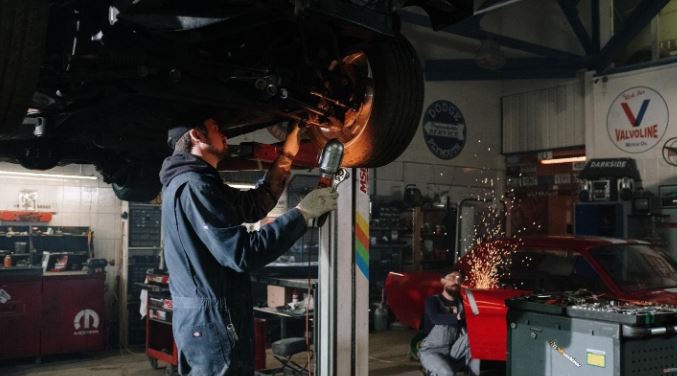
We are now faced with turbulent economic times because of the Covid-19 pandemic. As a result, people keep their cars for a longer period. We see more cars that have a high mileage on the road and safety risks are high because of the much higher mechanical failure possibility.
While every single car has its own more common issues, like the common Nissan Altima problems, there are some that are much more common than others. This is what we will talk about in the following paragraphs.
Timing Belts
In time, the teeth of the belt sheer off or the entire belt snaps. This can lead to catastrophic failure in the engine and you might end up having to fully rebuild your engine, which is quite costly. Whenever you hear loud knocking or rattling noises and there is a loss of power, the best thing you can do is to go to a mechanic. If you see that the entire engine shuts down, the belt most likely completely snapped.
Brake Systems
The car’s brake pads can completely wear down. This leads to brake disc damage and eventually a complete loss of power. Usually, the first sign noticed is a grinding noise, as if metal grinds on metal. It is also possible that you feel as if brake fluid was dropped, which is sometimes actually the case as you see brake fluid going down. If the brake fluid levels are going down faster than usual, it is a clear sign that brakes are now worn down.
It is also possible that brake system seals and/or brake houses are ruptured or leaking. This would lead to the brake system failing. These parts are normally replaced after 5 years.
Another problem that can appear is having brake fluid absorb moisture. This happens normally during use. As a result, heat resistance is lower and brake failure can happen. Also, the brake system will internally deteriorate, which leads to costly refurbishments. When 2 years pass since the last time you change the brake fluid, it absolutely has to be replaced.
The clearest warning sign that you have a brake-related problem is that the vehicle is no longer stopping as fast as it used to. You might also feel your pedals hard or spongy. A mechanic might also notice a black dirty brake fluid appearance inside the intended reservoir.
Radiator Problems
When the car goes through many cooling and heating cycles, the radiator and its hoses can fail or deteriorate. As a result, the engine overheats and it is possible that it fails.
The clear warning sign of such a problem is having temperature gauge red. Also, you will hear hissing coming from the cap. When referring to hoses, they can collapse or show signs of bulging. You might also experience power losses.
Alternator Problems
When this car part fails, the electrical system and the battery will not be able to maintain a charge. This leads to complete electrical failure. The most common warning sign is hearing a loud screeching noise coming from alternators as bearings fail. You might also notice that the battery/charge light in your dashboard is on and the vehicle might show difficulty starting.
Water Pump Problems
When water pumps fail, coolant does not reach all the parts of the engine. As a result, the engine overheats. You need to act fast if you see this happening or the entire engine will fail. Check the temperature reading and look for water leakage signs.
Shock Absorbers
If these fail, you will not be able to control your vehicle in an efficient way. Most shock absorbers have a service life of around 80,000 km. The most common warning signs of shock absorbers breaking down are poor ride quality, increased braking distance, reduced directional stability, brake wear, tire wear, poor handling, and nosediving when you stop the car. You might also notice fluid leaking.
 Barnorama All Fun In The Barn
Barnorama All Fun In The Barn